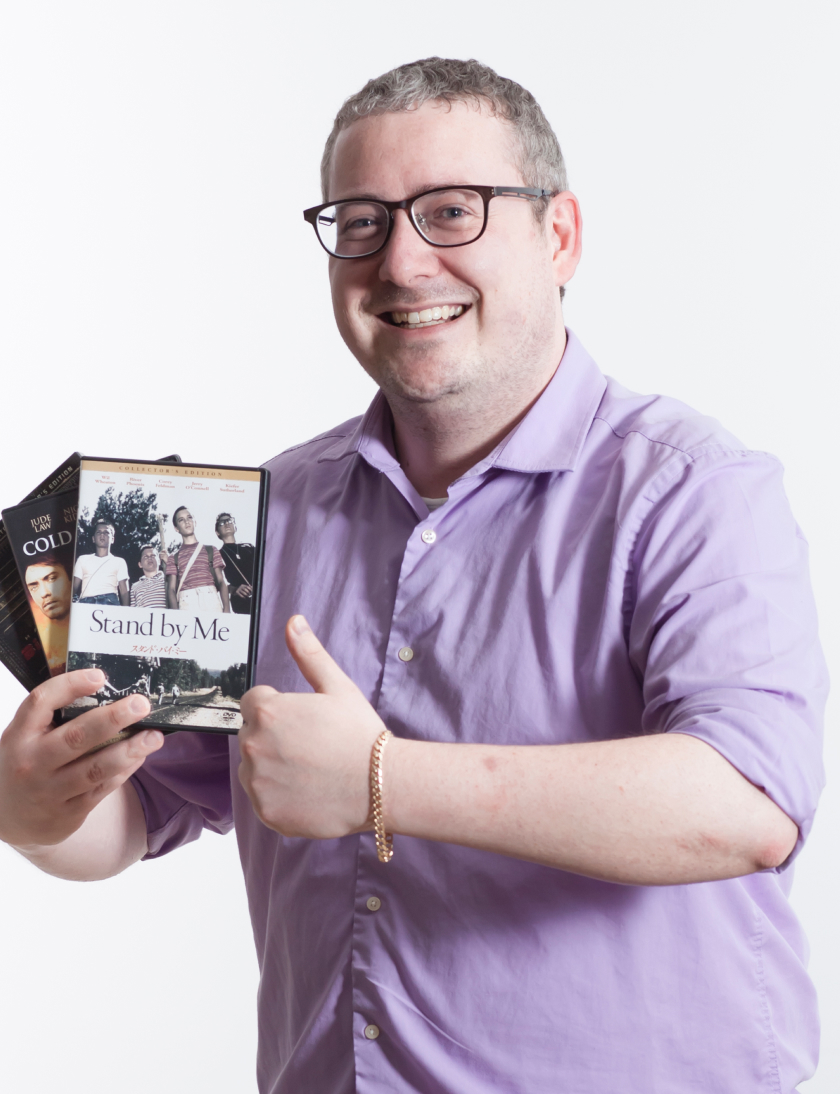
講師
ダン・ラムリー
Dan LUMLEY
- 専門:
- 英語教授法・留学
イギリスのノッティンガム出身で、2012年から日本にいます。セントラル・ランカシャー大学でTESOL (英語教授法) の修士号を、リヴァプール大学で高等教育の博士号を取得しました。20歳の時にアメリカで勉強する機会があり、留学に関心を持つようになりました。それが大きな影響となり、できる限り留学について学び、学生たちが海外での経験を最大限に活かせるようにお手伝いしようと決めました。
勉強や授業をしていない時は、映画やテレビを見るのが好きです。でも、最大の情熱を注いでいるのは、音楽ライブに行くことです!
I was born in Nottingham, England and I’ve been in Japan since 2012. I studied my master’s degree in TESOL at The University of Central Lancashire and my doctoral degree in higher education at The University of Liverpool. I became interested in study abroad because I had the chance to study abroad in America when I was 20 years old and it had a big impact on me, so I decided to learn as much as I can about study abroad and help students make the most of their experience abroad.
When I’m not studying or teaching, my hobbies include movies and TV, but my biggest passion is going to see live music!
メッセージ
外国語は知識科目ではなくスキル科目です。車の運転やギターの演奏など、あらゆるスキルを得るときと同じように、上達する唯一の方法は練習することです。最初は、時間がかかり、ミスも多いでしょう。でも、練習を重ね、ミスを恐れずに繰り返し続ければ、少しずつできるようになっていきます。
Foreign language is not a knowledge subject, but a skill subject. It is the same as learning any skill, like driving a car or playing the guitar – the only way to get better is to practice. At first, things will be a little slow and you will make many mistakes. However, if you keep practicing, keep making mistakes, then you will get better little by little.
グローバル共生学科ならではの学びとは?
グローバル共生学科の英語のカリキュラムには、私がお気に入りの2つの特徴があります。
1つ目は、統合されたカリキュラムです。「すべての」英語のクラスで共通のトピックで学習し、さまざまなトピックで議論を練習する機会が得られます。
2つ目は、テーマがよくある英語学習のためだけのトピックではないことです。国際問題やSDGsに基づいているので、英語だけでなく、国際問題を英語「で」学ぶ機会が得られます。
There are two unique features of Collabo English that I really like.
The first is our integrated curriculum. This means you will study the same topic in ALL of your English classes, giving you lots of chances to practice discussing various topics.
The second is that the topics are not general English topics. They are based on world issues and the SDGs. So not only do you get a chance to learn English, but also you get a chance to learn about world issues IN English.
専門分野
私がグローバル共生学科で担当しているほとんどの科目は英語の授業です。しかし、私自身の研究活動においては留学に最も興味があります。学生たちはなぜ留学に行くのか?留学プログラムで何を勉強するのか?留学から何を学ぶのか?私たちはどのように学生をサポートし、留学で素晴らしい経験を積めるように手を貸すことができるのか?という疑問を明らかにすべく研究しています。
Most of my classes in Collabo are English classes, but in my research activities, I’m most interested in study abroad. Why do students go to study abroad? How do students learn on their study abroad programme? What do students learn from studying abroad? How can we support students and help them have a great experience on study abroad?
学科で教えていること
主に英語を教えています。1年次の「Reading for Global Issues」、2年次の「Debating on Global Issues」、3年次の「Writing about Global Issues」を担当しています。また、教育関連のテーマに重点を置いたゼミや、海外留学に行く学科生のための留学準備プログラムを受け持っています。
I mainly teach English. First grade reading classes, second grade debate classes, and third grade writing classes. In addition, I have a seminar which focuses on themes related to education, and a study abroad preparation programme for Collabo students who go abroad.
担当科目
- Reading for Global Issues
- Debating on Global Issues
- Writing about Global Issues
PUT (Power-Up Tutorial)、Reading for Global Issues、Debating on Global Issuesのコーディネーターもしています。
I’m the coordinator for the Power Up! Tutorial classes, Critical Reading, and second year debate.
担当するゼミのテーマ
ゼミでは「高等」教育について、つまり、大学教育について教えています。大学はグローバル共生にどのように貢献できるかということをテーマにしています。学期ごとに以下のような異なるテーマが設定されています。
- 高等教育とは何か
- 高等教育における現状課題
- 留学
- 高等教育の国際化
ゼミの各授業では、私の短い講義と学生の議論を織り交ぜています。毎学期、学生は自分が選んだトピックについて研究する必要があります。学期の中間でちょっとしたプレゼンテーションを行い、学期末にはレポートを書きます。
過去に学生が選んだトピック
- なぜサハラ以南のアフリカの学生は十分な教育を受けられないのか?
- 高等教育における発達障害のある学生の支援
- 教師と生徒の間の信頼関係の重要性
- 就職活動と留学:高等教育における留学プログラムは将来のキャリアにどう影響するか?
- 大学は留学後の学生をどのようにサポートすればいいのか?
My seminar is about higher education. This means university education. In my seminar we look at how universities contribute to global governance and collaboration. Each semester is a different theme, and they are:
- What is higher education?
- Current issues in higher education
- Study abroad
- Internationalisation of higher education
In the classes, we have a mix of mini talks from me, and lots of student discussion. Each semester, students have to do a research project into ANY topic they choose. They give a small presentation in the middle of the semester, followed by a written report at the end of the semester.
Previous student topics include:
- Why can’t students in sub-Saharan Africa receive an adequate education?
- Supporting students with developmental disabilities in higher education
- The importance of rapport between teachers and students
- Shushoku Katsudo and Ryūgaku: How Does Study Abroad Program in Higher Education Influence Future Careers?
- How can universities support students after studying abroad?
最も影響を受けた言葉
私は、有名なオーストラリアのコメディアン、Tim Minchin(ティム・ミンチン)による卒業スピーチがとても好きです。彼は9つの教訓を述べましたが、私が最も好きなのは、以下の言葉です。
自分が好きなことで自分を定義せよ
さらに、彼は以下のようなことを言っています。
「最近、私は、誰かにどんな音楽が好きかと聞かれたら、「ポップな歌詞は嫌いなのでラジオは聴きません」と答えるようになっていることに気づきました。ネット上でもよく見かけるし…私たちは、物事に反対することで自分自身を定義する傾向があります。でも、自分が好きなものに対する情熱も表現するようにしてください。尊敬する人を、率直に、惜しみなく褒めてください。感謝の気持ちを伝え、盛大な拍手を送ってください。否定ではなく、肯定をしてください。」
— ティム・ミンチン
I really like the graduation speech given by a famous Australian comedian, Tim Minchin. He gives nine pieces of advice, but I really like this one:
Define Yourself By What You Love
He says,
“I’ve found myself doing this thing a bit recently, where, if someone asks me what sort of music I like, I say “well I don’t listen to the radio because pop lyrics annoy me”. And I see it all the time online…We have a tendency to define ourselves in opposition to stuff. But try to also express your passion for things you love. Be demonstrative and generous in your praise of those you admire. Send thank-you cards and give standing ovations. Be pro-stuff, not just anti-stuff.”
— Tim Minchin
